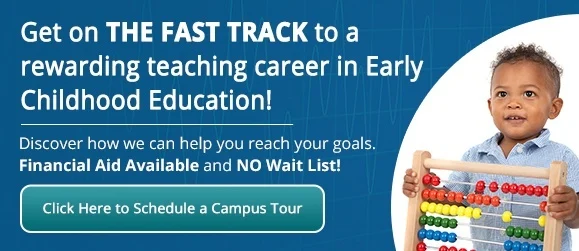Early Childhood Education Careers on the Rise
Posted On December 20,2022
Over the last ten to twenty years, the early childhood education (ECE) field has changed dramatically. Early childhood education starts from birth through age eight. Throughout the years, the learning process of young children has taken an advanced turn. Not so long ago, many viewed young children as blank slates who didn’t need to learn much before entering kindergarten.
Education specialists have since determined that young children learn many essential skills through interaction with adults and peers. Now we know that stimulating brain growth long before kindergarten can significantly impact their future education. The early learning process is much more than just learning fundamental skills. It is the ideal time for children to learn essential social-emotional skills, develop their cognitive ability, and practice critical thinking. Early childhood education sets a strong foundation for a child’s educational journey.

If you love children and have ever thought about working with them for a career, consider the route of early childhood education. Earning a degree in early childhood education allows you to work with children from birth through age eight, when they are most open to learning, allowing you to help set them up for lifelong academic success.
The demand for young passionate teachers continues to grow due to the need for high-quality early childhood education centers. According to the U.S. Bureau of Labor Statistics (BLS), early childhood education career opportunities are expected to grow over the next several years. More opportunities are likely to open up as many teachers are preparing to retire, and the emphasis on ECE rises. The estimates range from 50,000 preschool teaching jobs opening by 2028. If you’re interested in earning a degree in early childhood education, now is the ideal time to start your training, as you can expect a vast range of career options available when you graduate.

The Role of Early Childhood Educators
Early educators at this stage significantly impact a child’s life and the development of social-emotional skills. They play a supportive role in helping young children develop their imagination and learn persistence and curiosity. They also play a vital role in relationships with parents and the community. Children learn best by creating a sense of exploration, understanding others, and learning about their environment. The learning process at this age must be supported by engaged, passionate, and motivated ECE educators to help children develop a sense of identity and independence.
How to Maximize Learning Outcomes
The best way to maximize the learning outcomes of young children utilizes each child’s interest to introduce academic concepts and other learning skills. Each child is unique and learns at a different pace. Learning how to adjust educational programs and classrooms to serve children’s individual needs and interests will elevate their learning skills, giving them a chance to excel in all areas.
This is an exciting time for future ECE educators as the world now recognizes the importance and impact of early childhood education, especially in positively shaping young children’s academic future. We now know that young children are receptive and capable of developing many essential skills, far beyond just basic ones. Supportive learning from passionate, caring educators allows children to follow their dreams.
Ready to Become an Early Childhood Educator?
If you’re ready to take the next step toward earning a degree in early childhood education, contact Athena Career Academy. With so many professional opportunities out there, now is a great time to start pursuing your degree in ECE.